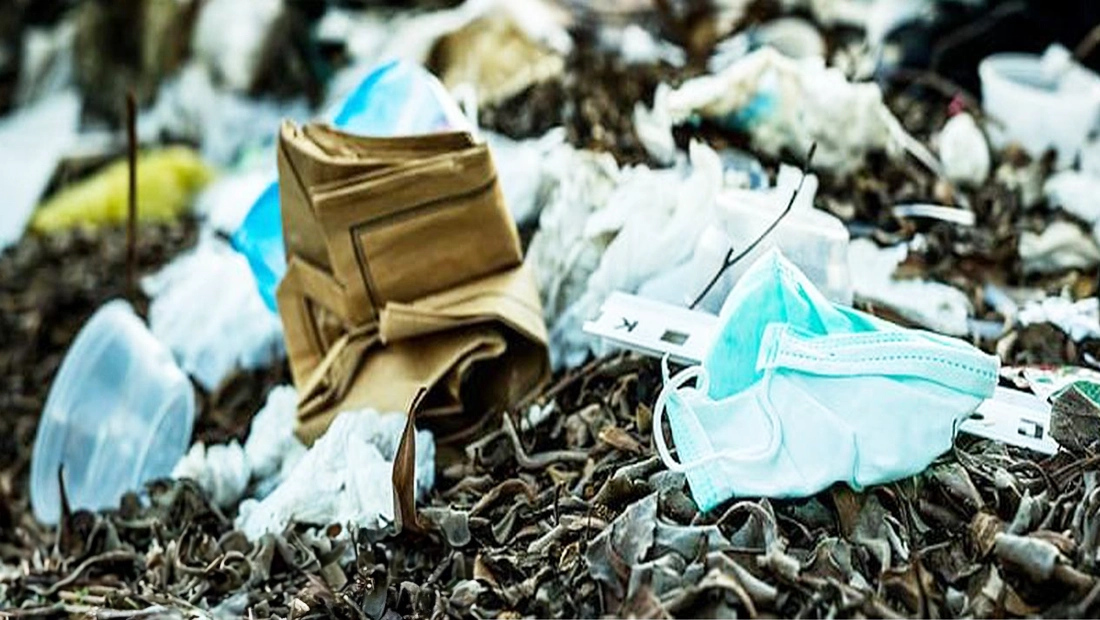Learn About Managing Medical Trash and How It Affects the Environment
Proper medical waste management is required to protect both public health and the environment. Medical waste management is a blanket term that also includes practices required to safely dispose of, treat, and store hazardous goods, such as biohazard waste disposal. Even in large countries like ours, efforts have been made, such as biodegradable gloves in India, toward cementing sustainable practices in the healthcare sector. Although it includes COVID-19 and the latest health crisis, the global medical garbage volume availability markets have more than significantly increased the need for efficient waste management systems. This rising volume of garbage places adds pressure on existing disposal facilities and necessitates environmentally responsible methods for reducing the impact on local ecosystems and communities.
Types of Medical Waste
 Medical waste can be classified into several categories, each requiring specific handling and disposal methods to prevent environmental contamination and protect public health:
Medical waste can be classified into several categories, each requiring specific handling and disposal methods to prevent environmental contamination and protect public health:
- Sharps: Includes items that can pierce or cut skin, such as needles, syringes, scalpel blades, and broken glass. These require sturdy, puncture-resistant containers for disposal to prevent injury and disease transmission.
- Pathological Waste: Consists of human tissues, organs, body parts, and fluids removed during surgery or autopsy. This type of waste poses a high risk of infection and requires incineration or special treatment processes.
- Chemical Waste: Encompasses discarded solvents, reagents, and other chemicals used in medical research and diagnostic procedures. Proper segregation and neutralization are crucial to prevent chemical exposure and environmental pollution.
- Pharmaceutical Waste: Includes expired, unused, or contaminated drugs and vaccines. Disposal methods vary depending on the drug’s properties, with some requiring incineration and others special handling to prevent misuse and environmental harm.
- Cytotoxic Waste: Contains substances with toxic properties used in cancer treatment and certain medical research. Due to its highly hazardous nature, cytotoxic waste requires careful handling, segregation, and specific disposal methods to ensure safety.
Risks involved:
- Sharps: Can cause injury and spread infections if they pierce waste bags, potentially leading to the release of pathogens into the environment.
- Pathological Waste: Risks spreading infectious diseases if not properly treated, contaminating soil and water bodies, and attracting pests.
- Chemical Waste: Can lead to soil and water pollution with hazardous chemicals, affecting wildlife and human health; volatile compounds contribute to air pollution.
- Pharmaceutical Waste: Medications entering water systems can harm aquatic life and disrupt ecosystems; contributes to the emergence of antibiotic-resistant bacteria.
- Cytotoxic Waste: Poses a high risk of contamination with toxic substances that can impact soil and water quality, threatening both wildlife and human health.
Environmental Impact of Medical Waste
 Non-managed medical waste, such as non-biodegradable items like conventional gloves, is a major pollutant. On the other hand, “Biodegradable Gloves India” makes a difference by reducing the harm caused to the environment. Also, the mismanagement of biohazard waste disposal results in soil and water contamination, allowing harmful chemicals to bioaccumulate in the food chain, and causing harm to animals and humans. Moreover, incineration of medical waste affects air quality and aggravates the climate crisis by emitting toxic pollutants and gasses. All of the above factors highlight the critical need for effective waste control measures.
Non-managed medical waste, such as non-biodegradable items like conventional gloves, is a major pollutant. On the other hand, “Biodegradable Gloves India” makes a difference by reducing the harm caused to the environment. Also, the mismanagement of biohazard waste disposal results in soil and water contamination, allowing harmful chemicals to bioaccumulate in the food chain, and causing harm to animals and humans. Moreover, incineration of medical waste affects air quality and aggravates the climate crisis by emitting toxic pollutants and gasses. All of the above factors highlight the critical need for effective waste control measures.
Current Management Practices
Standard procedures for the management of medical waste included waste segregation, collection, transportation transport, treatment, and disposal. Waste segregation is done at the point of origin according to type and exposure level. Collection is then transported in labeled and secure containers to the selected treatment site where different techniques such as autoclaving, chemical disinfection, and incineration are used to reduce the exposure level before disposal is done. All the processes should follow set regulatory guidelines and standards to ensure the risks to health and the environment are addressed. Adherence is essential to protect health workers, and the public and safeguard the environment from the possible threats posed by hazardous materials.
Challenges in Medical Waste Management
Developing countries’ healthcare also face major medical waste management challenges due to inadequate infrastructure to support segregation, treatment, and disposal. Inadequate training for healthcare workers on the proper medical waste handling practices and inadequate financial resources to support the systems and technologies required are also to blame. The continued mass production of disposable medical supplies and equipment has also worsened the situation through increased waste production which has overwhelmed the little-acquired systems. In summary, the numerous challenges call for urgent comprehensive strategies that address the lack of infrastructure, low training programs, and unsustainable funding to respond to the high medical waste generation.
Innovations and Sustainable Practices
- Autoclaving: Utilizes steam under high pressure to sterilize medical waste, effectively destroying bacteria, viruses, and other pathogens without releasing harmful emissions.
- Microwave Treatment: Employs microwaves to heat medical waste, killing pathogens through thermal inactivation, offering an efficient and environmentally friendly alternative to incineration.
- Enzymatic Treatments: Leverage specific enzymes to break down organic components of medical waste, including prions and other tough-to-destroy pathogens, promising a greener and safer waste disposal method.
Overall, recycling and reprocessing are directly associated with the reduction of the environmental burden. Both processes allow the reusing of materials taken from used medical products, which in turn helps to reduce waste, the need for raw materials, and the ecological footprint of health care. In addition, reprocessing is associated with the opportunity to use medical devices securely and effectively: the process assists in reducing generated waste and achieving a more sustainable system that consumes fewer resources and results in lower greenhouse gas emissions.
Role of Technology
- IoT Devices: Facilitate real-time monitoring of medical waste bins to optimize collection schedules and prevent overfilling, enhancing efficiency.
- Blockchain: Offers a secure, transparent ledger for tracking medical waste from generation to disposal, ensuring regulatory compliance and reducing mismanagement.
- Data Analytics: Utilizes waste generation data to predict trends, improve segregation practices, and identify reduction opportunities.
- RFID Technology: Enables precise tracking of waste containers, improving logistics and accountability in waste handling processes.
- Mobile Applications: Streamline waste management processes, offering easy reporting and tracking capabilities for healthcare facilities.
Public Health and Community Involvement
Public health education is important in preventing environmental contamination due to unsafe disposal of household medical waste, including expired medications and used sharps. Individuals can be taught how to safely dispose of these items, thus eliminating the risks of diseases and injuries from sharp objects. Communities must also participate in other initiatives to reduce this type of waste, such as recycling and reusing, which has a great potential to minimize the environmental impact. Promoting such actions encourages people to take collective responsibility for their living environment and public health. It reminds everyone that this is important for a sustainable and active life.
Conclusion
Successfully handling medical trash is critical for protecting the environment and the well-being of its inhabitants, reducing pollution and halting the spread of disease. It is incumbent on all of us to rise to the occasion as we face the difficulties ahead surrounding medical trash in the future. You can find additional information and help out by visiting https://www.psidispo.com/. Let us promote and embrace sustainable waste management in our surroundings and hospitals. Every one of us has a part to play. Your effort makes a difference in the world becoming a safer place to live!

